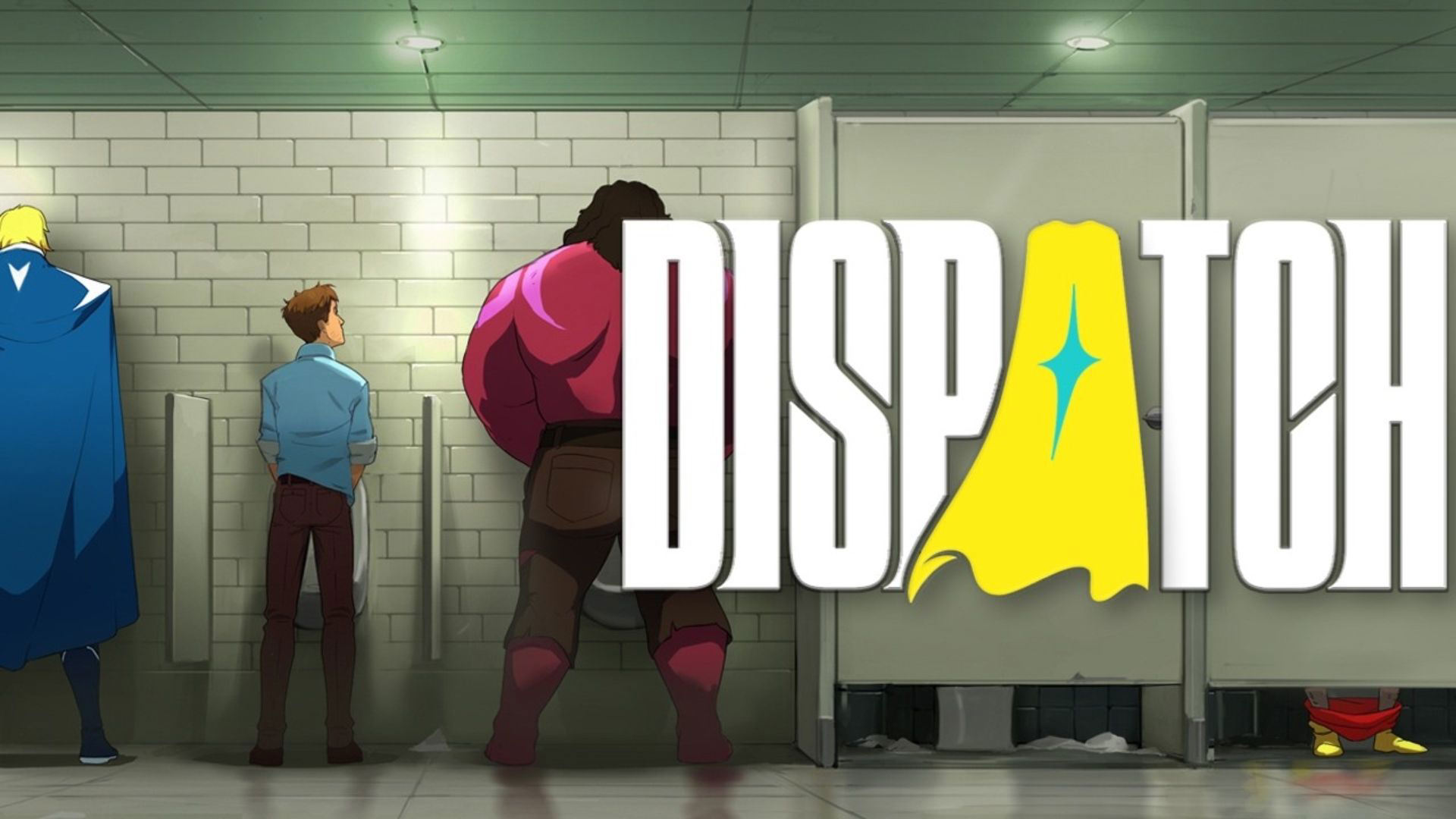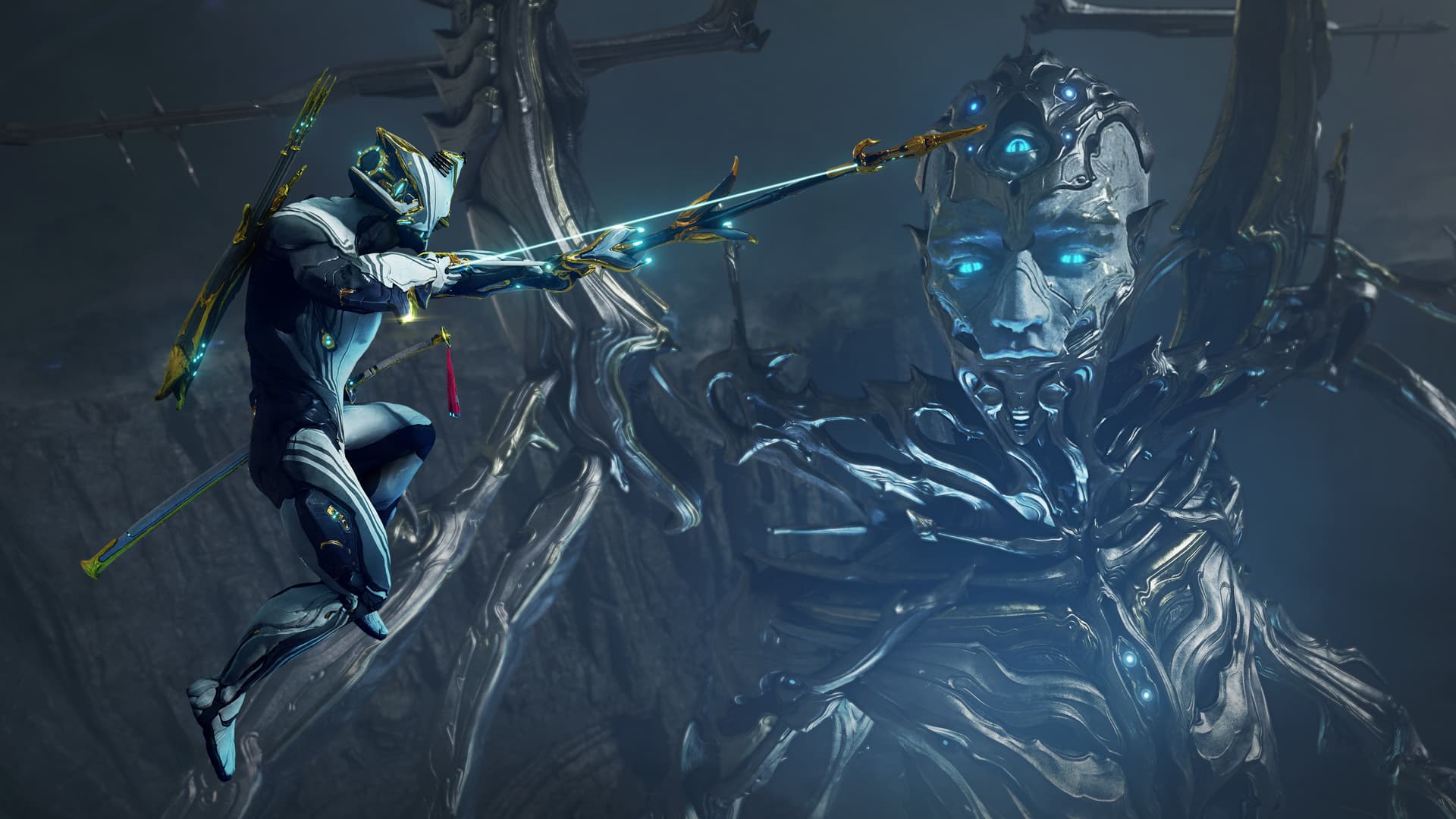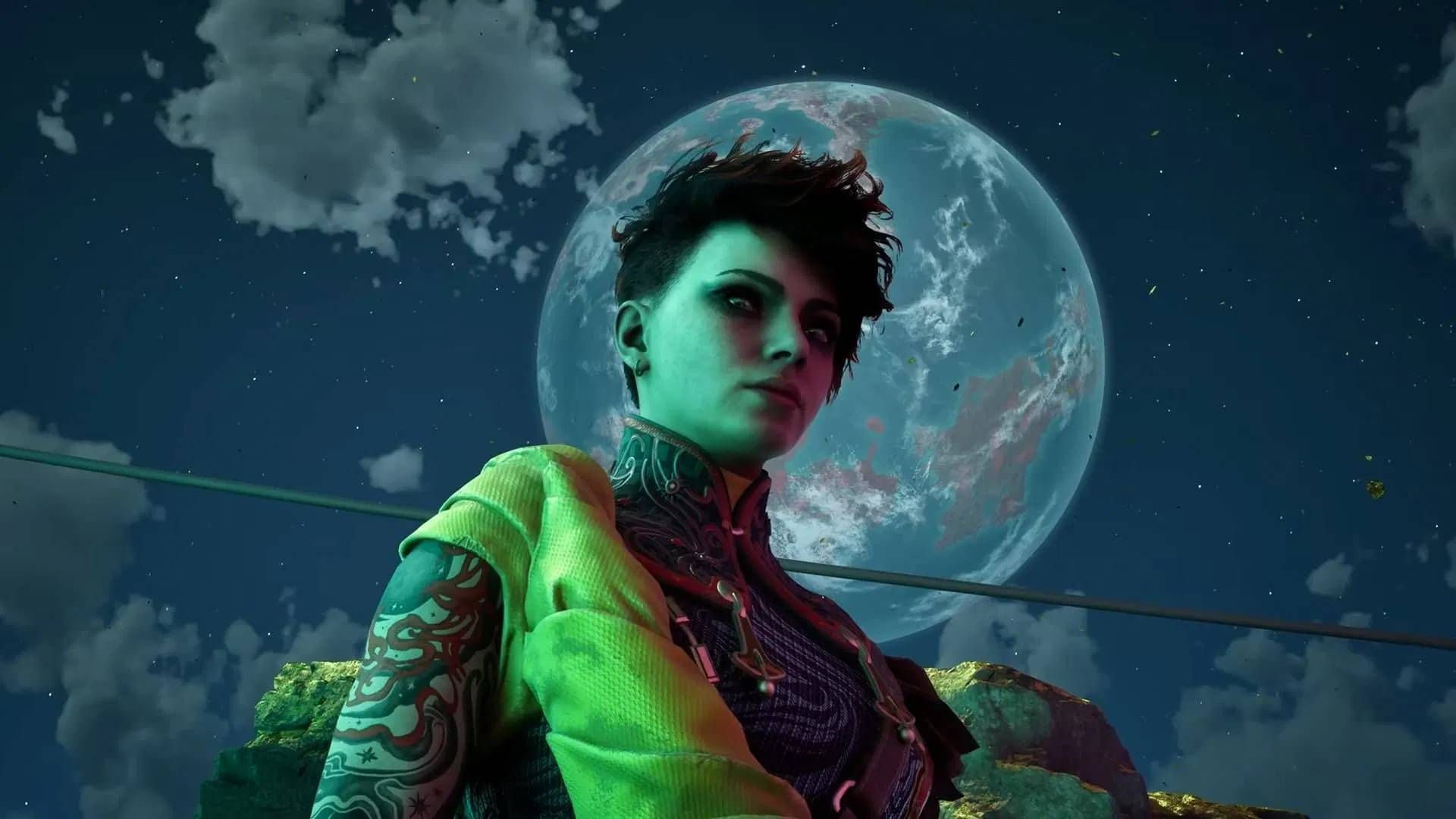Seven years after AdHoc Studio was founded by former developers from Telltale Games, Ubisoft, and Night School, the studio has released its debut title: *Dispatch*. An original interactive narrative game, *Dispatch* takes heavy inspiration from the games that made the genre a mainstay and builds on them to deliver one of the best narrative experiences I’ve had in years.
### Rock Bottom
*Dispatch* follows the story of Robert Robertson, who was once the popular superhero Mecha Man. A third-generation hero, Robert lives in the shadow of his dad and grandfather. After his suit is destroyed during his pursuit of the man who killed his father, Robert finds himself at rock bottom.
Now powerless, he’s recruited to join SDN (Superhero Dispatch Network), where he manages heroes from behind a desk. The catch? The team Robert is assigned to—the Z-Team—are all former criminals. SDN seeks to rehabilitate these ex-villains and turn them into heroes as part of the “Phoenix Program.”
This premise sets the stage for *Dispatch*’s unique narrative hook. Over the course of the story, I grew to love this crew of misfits and their shenanigans. Conversely, working with them helps Robert develop as a hero himself, even without his suit.
### A Reinvigorated Narrative
I was blown away by *Dispatch*’s exceptional writing. Going in knowing virtually nothing about the game, I was hooked by the end of Chapter 1. AdHoc Studio does an amazing job establishing the world, its major players, and the stakes at hand.
Much of this is bolstered by *Dispatch*’s star-studded voice cast. Robert is voiced by Aaron Paul, famously known for his role as Jesse Pinkman in *Breaking Bad*. Alongside him are Laura Bailey (as Invisigal), Jeffrey Wright (as Chase), and Matthew Mercer (as Shroud). Each actor delivers phenomenal performances, perfectly capturing the emotion and humor the story demands.
Several Z-Team members are also voiced by content creators and artists, all of whom impressed me with their performances.
### Classic Episodic Format with Perfect Pacing
In classic Telltale fashion, *Dispatch* uses an episodic format, with two episodes releasing weekly throughout October and November 2025. While episodic releases can sometimes be hit-or-miss, the pacing in *Dispatch* is nearly perfect.
Each chapter is packed with impactful decisions, unforgettable moments, and teasers that made me eager to return the following week.
### Player Choice Matters
As an interactive narrative game, *Dispatch* places the power to influence the story in the hands of players. The storyline branches in various directions based on your actions and how you respond to characters. This can range from something as simple as choosing what kind of food to throw at someone in the break room to deciding who gets cut from the Z-Team.
*Dispatch* makes you feel the weight of these choices, and this brings me to my favorite character in the game: Blonde Blazer. She is the character who welcomes you into SDN and is a pillar of strength and bravery in the superhero community. Blonde Blazer is also one of the game’s two romance options (alongside Invisigal), and following her storyline was one of the most rewarding experiences in the game.
Her character offers a fascinating breakdown of a popular superhero archetype, anchored by a flawless performance from Erin Yvette.
If it sounds like I’m gushing, well—that’s exactly what *Dispatch* does. It makes you fall in love with a cast of characters in a way few games can.
By the time I reached the game’s climactic final chapter, my heart was pounding as I feared for the wellbeing of all these characters I had come to adore.
### Some Genre Limitations
While *Dispatch* excels in many areas, it suffers from some of the same issues that have long plagued the interactive narrative genre. The constraints of branching narratives mean that certain story events are guaranteed to happen regardless of your input.
This can undercut the impact of some decisions, especially on replay, when you realize that different dialogue options ultimately lead to the same outcome.
### The Secret Sauce: Music
Before moving on, I want to highlight what I believe to be *Dispatch*’s secret sauce: its music. Specifically, the indie songs carefully selected by someone at AdHoc to accompany the game’s best moments.
For example, Deep Dreem’s “Little Light” at the end of Episode 4 made me feel like I was levitating. Hearing “Radio” by Bushy during the party scene in Episode 6 solidified that as my favorite scene in the entire game.
This is in addition to the original soundtrack, which also deserves praise. Music is integral to the *Dispatch* experience, and I honestly can’t imagine playing the game without its carefully curated soundtrack and OST.
### Doing Good Work: Gameplay That Works
From the moment I tried out the dispatching minigames, I knew *Dispatch* was a cut above many other interactive narrative titles.
Amidst all the drama and romance, you actually have to do your job: dispatching heroes, assigning them to tasks, and keeping everything organized.
In many games, this aspect might have been the boring “vegetables” you need to eat before you get to the “dessert.” However, AdHoc made this part of the gameplay compelling as well.
*Dispatch*’s gameplay is essentially a management simulator. You stare at a map of Los Angeles, and as calls come in from citizens in need, you send the right hero to the job. These jobs range from cats stuck in trees and fights at sporting events to kaiju terrorizing a beach.
Each task requires specific characteristics, and you have to use your knowledge of the Z-Team to figure out the best fit. For example, if a job requires someone with strong communication skills, I’d send Prism, as she has the highest Charisma stat.
Success depends on how closely a character’s attributes match the job’s requirements. Successful missions earn characters XP, allowing them to level up and increase their stats.
Strategically managing your heroes is crucial. Heroes take time to travel to and from jobs and need rest after completing tasks before they can go out again. Sending too many heroes at once can leave you unprepared for later calls.
Adding another layer of strategy, characters have synergies that encourage pairing specific heroes together.
### What It Means To Be a Hero
*Dispatch* was my most pleasant surprise of the year. In a pop culture landscape flooded with superhero parodies and deconstructions, *Dispatch* manages to carve out its own unique path.
Its core message—that anyone can do good, regardless of their past mistakes or origins—truly resonated with me. I won’t lie; I got a little emotional during the final credits.
Beyond that, it’s a hilarious superhero romp with satisfying storylines and characters I’m practically begging to see again.
If this is the quality we can expect from AdHoc Studio, the interactive narrative genre is definitely in good hands.
—
**Review Details:**
This review is based on the Steam version of *Dispatch*. The game is available now for $29.99 USD on PC and PS5.
https://www.shacknews.com/article/146836/dispatch-review-score


